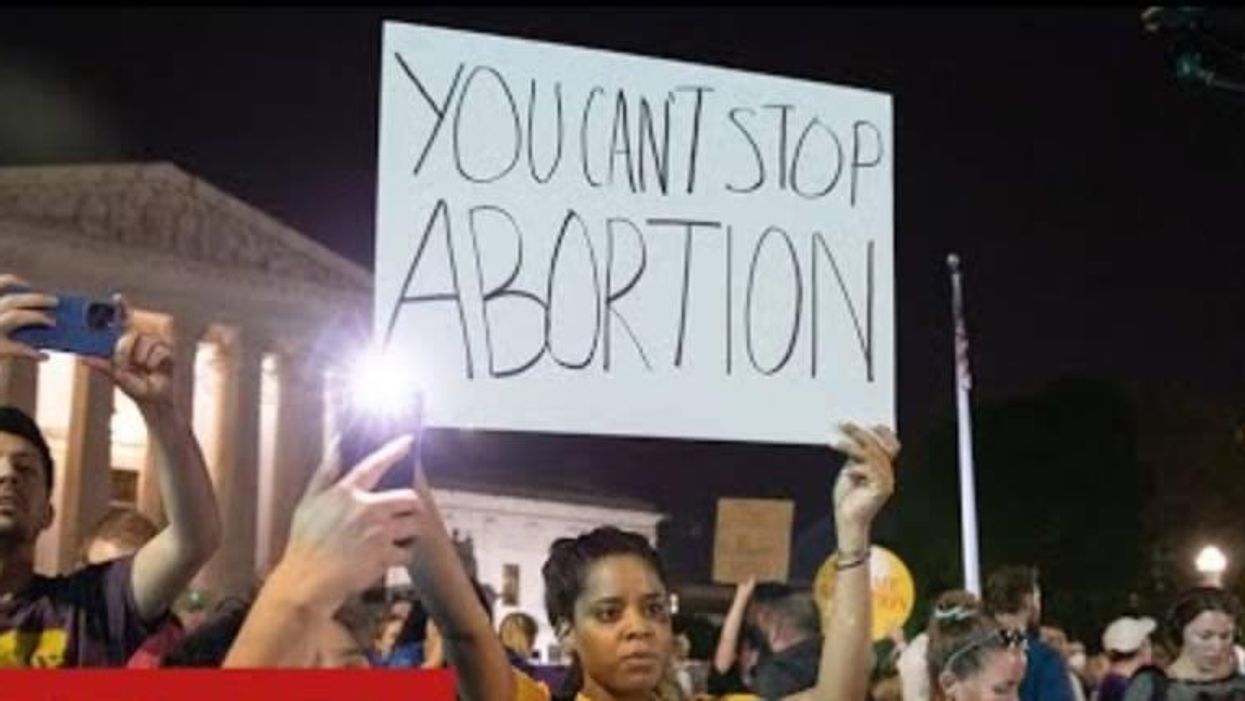What Happens When The U.S. Government Reports 'Alternative Facts'?
Much has been written about the Trump team's assault on civil society, universities, public health, the judiciary and our global alliances, and rightly so — but there is one danger that deserves more attention because our ability to thwart this attempted revolution, this upending of our constitutional system, depends upon truth itself.
We have seen one institution after another buckle before President Donald Trump's onslaught. If Congress is conquered, and Big Tech won't oppose him, and Big Media is bending the knee, and Big Law is folding, and universities are crumpling, and the judiciary is a question mark, who is left? Only the voters.
But what if the voters don't have a grasp on reality? What if the inflation rate rises to 9%, bird flu is ravaging farms across the Midwest, unemployment is rising, the economy is shrinking, measles is killing hundreds of children, crime is rising — but the government has suppressed or falsified the data that would reveal those conditions? We face the prospect that many government statistics will be manipulated by Trumpists.
The demolition work has already begun. The Labor Department has dismissed a committee of economists, academics and business leaders who advised the Bureau of Labor Statistics. The Commerce Department has disbanded the Federal Economic Statistics Advisory Committee — an arm of the Bureau of Economic Analysis — which seeks, or rather sought, to help the government provide accurate statistics on many aspects of the economy.
The move came on the heels of Commerce Secretary Howard Lutnick telling Fox News that he plans to alter the way GDP is calculated. "You know the Commerce Department runs the statistics of GDP. Governments historically have messed with GDP. They count government spending as part of GDP. So I'm going to separate those two and make it transparent."
Yes, some governments (think China) do sometimes misrepresent economic statistics. But our government has been pretty clean in this regard — until now. Keep in mind also that any first-year economics student could tell you how to break down GDP into government spending, consumption, investment and net exports — all statistics that are, for now, easily accessible thanks to the government.
This is yet another way the Trump administration is undermining America's global standing. As Tara Sinclair, a professor at George Washington University's Center for Economic Research, told NPR, "If the data were manipulated, even in a small way, that will affect the credibility of our entire statistical system. And that's going to have global financial implications, because people around the world rely on the quality of U.S. economic data to make decisions."
Advisory panels do more than offer expertise; they provide insurance against the politicization of government statistics. Without neutral outsiders looking over the shoulders of government decision-makers, it becomes easier to fudge or hide data. That brings us to the Census Bureau, the agency that determines who lives where and how many votes each district is entitled to, among many other things. It just dismissed five outside advisory panels.
Simultaneously, the administration is curtailing public access to climate-change data compiled by the National Oceanographic and Atmospheric Administration. You say the Earth is warming — well, we have data that say the opposite. It's "alternative facts," but this time, it's not just Kellyanne Conway riffing with reporters — it comes bearing a government imprimatur.
It would be easier to count grains of sand on a beach than to keep track of the lies emanating from this administration, but manipulating official government studies and statistics is a step beyond anything we've seen and a profound threat.
Consider the secretary of health and human services, who has spent his entire career denying reality about infectious diseases, vaccines, and other matters. Nominating and confirming (looking at you, Sen. Dr. Bill Cassidy of Louisiana) such a dangerous crank for a key public health post was an antisocial act.
Even if Robert F. Kennedy Jr. never did anything but repeat the falsehoods about vaccines that have marked his career, it was a certainty that people would look to him for guidance and be harmed. Sure enough, last week, in the midst of the measles outbreak in Texas, a number of unvaccinated people who contracted measles were admitted to hospitals with vitamin A toxicity.
Under Kennedy, HHS is taking lying to new extremes. Though multiple studies, including one featuring half a million Danish children, have discredited the notion that there is a link between vaccines and autism, Kennedy has authorized a new study to search for a "link." This is beyond mendacious. The original study suggesting a connection was found to have been a hoax years ago, and again, no reputable research since has found any association between vaccines and autism. Autism diagnoses are rising due to awareness, not vaccines, as any person not suffering from oppositional defiant disorder can figure out.
Kennedy has chosen David Geier to conduct this sham "study." Geier is not a physician (though he was sanctioned by the state of Maryland for practicing medicine without a license), and he's a proponent of the vaccines-cause-autism deceit. But few will remember this when he produces a government-sponsored "study" showing a link between the MMR vaccine and autism.
The Trump administration is doing more than attempting to seize unconstitutional power for an unaccountable executive. It is seeking to destroy truth itself, the last tool of the opposition.
Mona Charen is policy editor of The Bulwark and host of the "Beg to Differ" podcast. Her new book, Hard Right: The GOP's Drift Toward Extremism, is available now.
Reprinted with permission from Creators.












